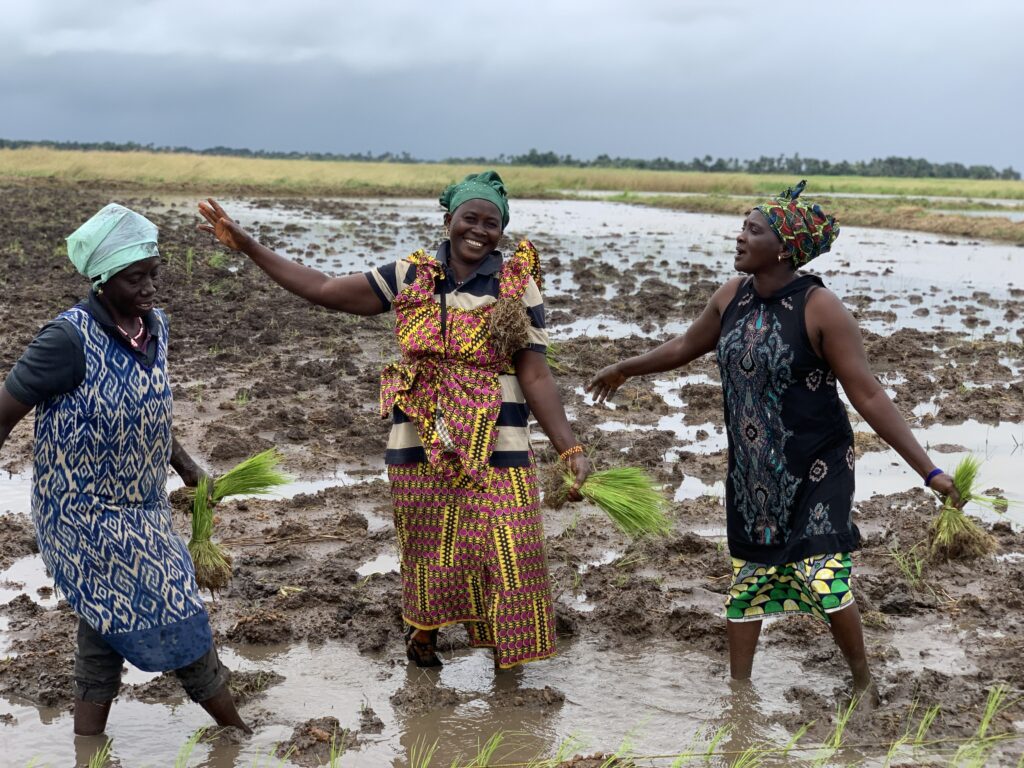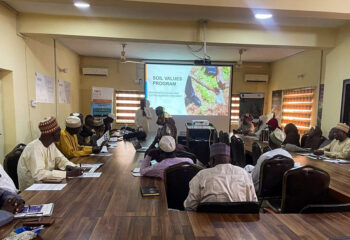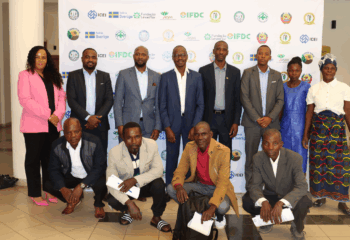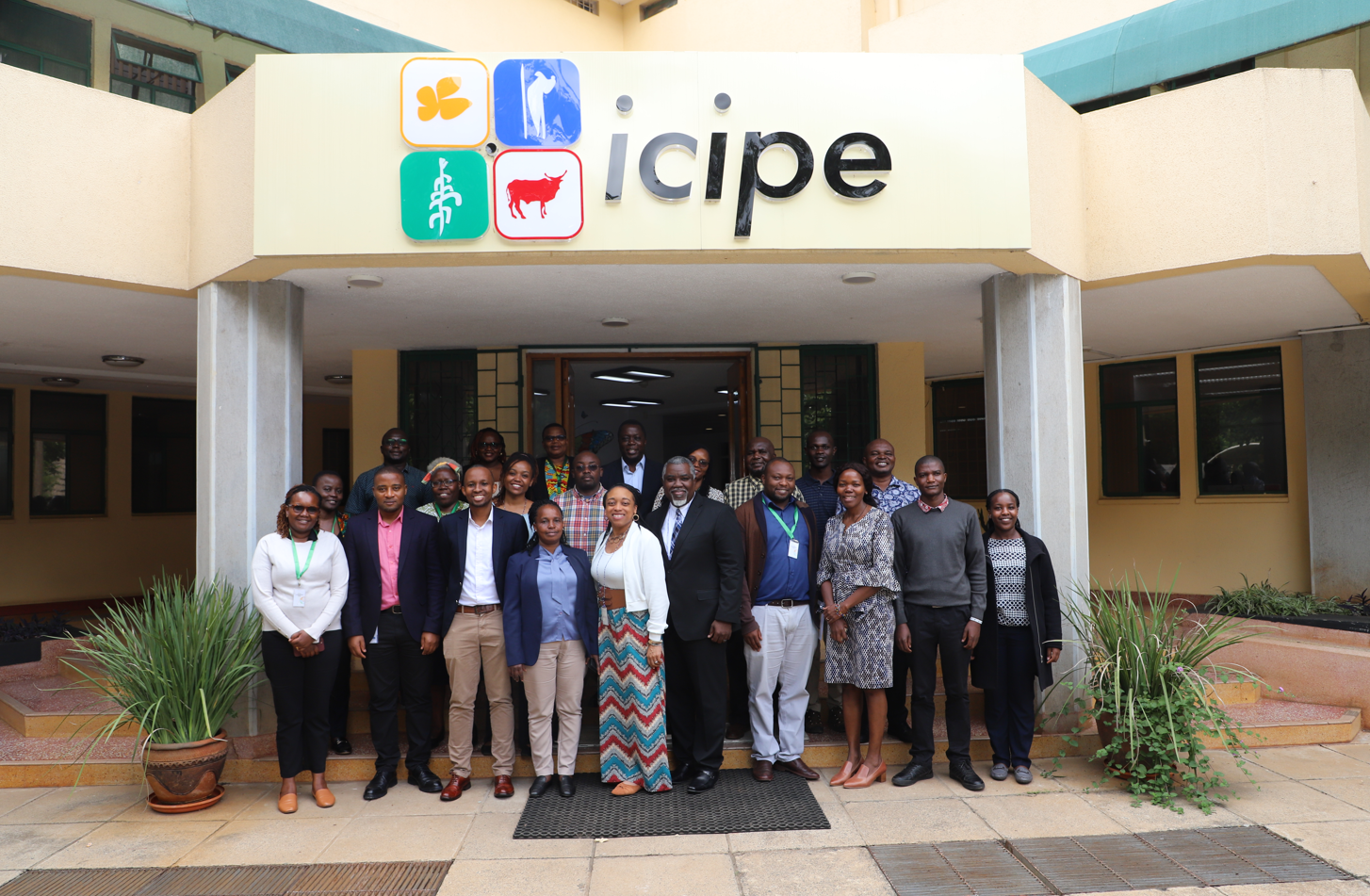
As part of IFDC’s broader efforts to strengthen food security and boost production in Guinea, two complementary projects—the Rice Value Chain Development Project (PDCVR-G) and the Integrated Rural Development Project in Gaoual, Koundara, and Mali (PDRI/GKM)—are equipping farmers with tools like urea deep placement (UDP) to increase yields, lower input costs, and enhance agricultural resilience.
“I’ve always grown rice like my parents did, but with this new method from IFDC, I hope to harvest more and feed my family better. It’s a new beginning for us.”
Djan Bailo Diallo, Participating Farmer
PDCVR-G has launched specialized training programs for rice growers. These capacity-building sessions aim to equip farmers with the knowledge and tools needed to increase productivity, improve quality, and enhance the overall value of the rice sector.
Over 1,200 rice growers in the seven prefectures of Boffa, Boké, Coyah, Dinguiraye, Dubréka, Kouroussa, and Siguiri benefited from the training. The training was carried out through the establishment of 45 farmer field schools, a participatory model that enables producers to master innovative agricultural techniques directly in the field.
Additionally, the PDRI/GKM project trained more than 900 farmers through intensive training sessions in 30 farmer field schools, where growers learned how to master this technique. Today, these farmers are applying this new knowledge in their own fields and sharing it with their communities.
The trainings focused on the UDP technique, which offers promising prospects for increasing rice yields. UDP involves burying small urea briquettes in the soil between four rice plants at the most optimal depth. These briquettes are obtained by mechanically compressing urea, thus enabling slower, more efficient diffusion of nitrogen into the soil—leading to reduced fertilizer losses, improved crop uptake, and lower environmental impact.
For Djan Bailo Diallo, a participating farmer, the training represents a real shift: “I’ve always grown rice like my parents did, but with this new method from IFDC, I hope to harvest more and feed my family better. It’s a new beginning for us.”
By enhancing local production, the initiatives contribute to greater self-sufficiency and strengthens national food security.
Improving rice cultivation, processing, and marketing techniques is expected to create new economic opportunities for farmers, agribusinesses, and local communities. These interventions will not only improve yields and product quality but also add value along the entire rice value chain—driving job creation, boosting rural incomes, and contributing to overall economic growth in Guinea.
As the projects continue to expand its reach, the goal is to scale these innovations across more regions, fostering a stronger, more resilient rice sector to reduce Guinea’s dependence on imports of this staple food.
By empowering farmers and strengthening the rice value chain, both initiatives not only enhances national food security but also contributes to broader development goals. Aligned with global efforts to achieve the Sustainable Development Goals (SDGs)—particularly those focused on ending poverty and hunger—it represents a strategic step toward building resilient agricultural systems and inclusive economic growth for Guinea’s future.
About PDCVR-G
The Rice Value Chain Development Project (PDCVR-G) (2019–2025) supports sustainable agricultural growth in Guinea by reducing rice imports and strengthening the rice value chain through improved production, processing, and marketing. PDCVR-G is funded by the Islamic Development Bank (IsDB) and the Arab Bank for Economic Development in Africa (BADEA) and is implemented by IFDC, the Ministry of Agriculture and Livestock (MAG/EL), Guinea Agronomic Research Institute (IRAG), the Rural Promotion and Agricultural Extension Service (SERPROCA), and farmer organizations.
About PDRI/GKM
The PDRI/GKM project (2019–2025) supports agricultural growth and rural development in Gaoual, Koundara, and Mali prefectures in Guinea by boosting production, improving market access, and strengthening infrastructure. PDRI/GKM is funded by the Islamic Development Bank (IsDB) and implemented by IFDC, the Ministry of Agriculture and Livestock (MAG/EL), Guinea Agronomic Research Institute (IRAG), the Rural Promotion and Agricultural Extension Service (SERPROCA), and farmer organizations.



